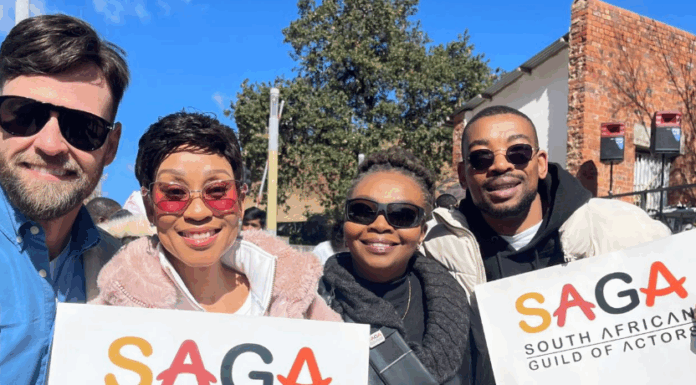The National Union of Metalworkers of South Africa (NUMSA) has issued a call to end the exploitation of South African actors.
This after the death of veteran actress Nandi Nyembe, who left many artists calling for the government to sign the Performers’ Protection Amendment Bill.
Known for her iconic roles that brought joy, laughter, and meaning to millions, Nyembe’s passing highlighted the dire conditions faced by many in the creative industry, said NUMSA’s Deputy General Secretary, Mbuso Ngubane.
According to Ngubane, Nyembe’s death is not just a personal loss for her family.
“She was unable to afford adequate medical care despite her decades-long contributions to film and television. It is a painful blow to an industry already in crisis, she left behind a legacy that highlights the urgent need for reform,” he said.
He described the creative sector as parasitic, feeding off the labour of artists while denying them fair compensation and security.
Sector employs over million people
The South African Cultural Observatory revealed that the creative sector contributes 6.72% to the economy. The sector, employing over a million people, encompassing music, film, television, performing arts, digital media, crafts, and design.
Yet, the workers are freelancers, lacking standard contracts, benefits, or legal protections.
“The union identified key challenges facing the industry, including aggressive resistance from industry owners, many tied to apartheid-era media opposing regulation and transformation.
“Other issues include exploitative contracts that violate the Labour Relations Act, [blocklisting] of vocal workers, and fragmented workplaces that hinder union organising.
“The union insists that Nyembe’s death must be a turning point. She must be the last to suffer such indignity.”
Last week veteran actress Vatiswa Ndara accused the broadcasting industry of sidelining her.
Ndara reveals this information in her upcoming autobiography, Unfiltered 2, which delves into the less glamorous realm of show business.
“One can confidently say that I have been [blocklisted]. The tricky thing about being [blocklisted], though, is that one can’t really prove it.
Battle against slave wage
This after more than 300 furious extras wrote a letter to casting agencies and production houses earlier this month.
They demanded the minimum of R500 per day, or they will boycott the set.
This publication discovered that background actors are currently paid between R150 and R300 a day. This means some background workers are paid a slave wage of R3,000 for working for 20 days. This is far below the minimum wage, which is just under R5,000.
If their wage demand does not fall on deaf ears, this means if they work for 20 days in a month, they will be paid R10,000. This or R15,000 should they work for 30 days in a month.
ALSO READ: Background actors revolt against slave wage: we’re not donkeys




